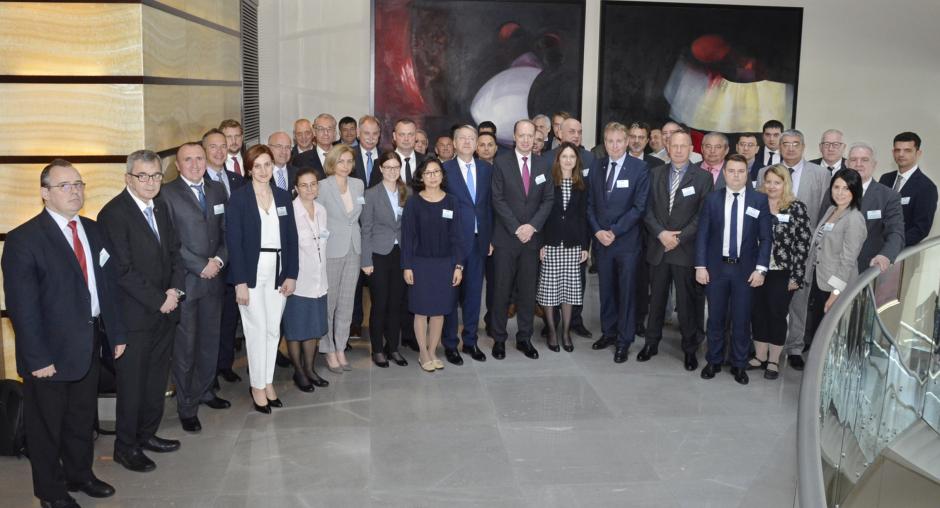Continued relevance of the Code of Conduct on Politico-Military Aspects of Security highlighted at OSCE seminar in Bucharest

The role of armed and security forces in democratic societies was the focus of a seminar organized by the OSCE Conflict Prevention Centre from 14 to 18 May 2018 in Bucharest. The discussion brought together more than 50 participants, including senior officers from the armed forces, senior government officials, representatives of the OSCE Parliamentary Assembly and the OSCE Office for Democratic Institutions and Human Rights and representatives of academia and civil society, from Romania and other OSCE participating States.
Democratic control of the armed and security forces, parliamentary oversight and respect for international humanitarian and human rights law for armed forces personnel, as well as migration challenges in relation to the work of the armed forces were the main topics of discussion.
Participants also gathered in working groups to share experiences and best practices in applying the inter- and intra-state level commitments and principles enshrined in the OSCE Code of Conduct on Politico-Military Aspects of Security, a landmark document adopted in 1994 detailing the governance of the security sector and the role of armed and security forces in democratic societies.
“The Code of Conduct has provided continued guidance for Romania and serves as a toolbox for the region,” said George Ciamba, State Secretary at Romania’s Foreign Ministry, as he opened the event. “Importantly, the Code is something to speak about more and not less, and this seminar is an excellent opportunity to exchange good practices in the region.”
Andrej Benedejčič, Chairperson of the OSCE Forum for Security Co-operation (FSC) and Permanent Representative of Slovenia to the OSCE, said: “One of the fascinating aspects of the Code is that even though it has never been revised since its adoption, it has not lost its relevance as a unique norm-setting framework document.”
Marcel Peško, Director of the OSCE Conflict Prevention Centre, emphasized that “the Code of Conduct is a visionary document. Besides raising awareness, this seminar creates an opportunity to engage in forward looking dialogue and to build trust.”
The Code of Conduct contains key principles and commitments for the 57 OSCE participating States related to security relations between States and to the control of all armed and security forces within a state.
The seminar was held in line with an FSC decision according to which the OSCE Secretariat is requested to organize at least one specialized seminar or workshop annually in order to facilitate better implementation and promote awareness of the Code of Conduct and support outreach in its regard.
The seminar was co-hosted by the OSCE and Romania, with donor support provided by Germany and Switzerland.
